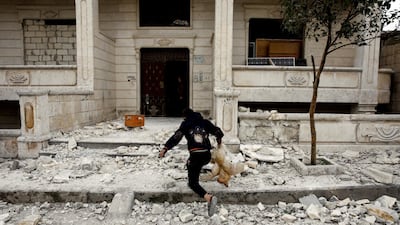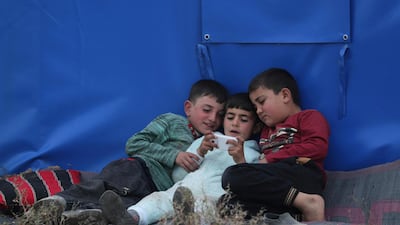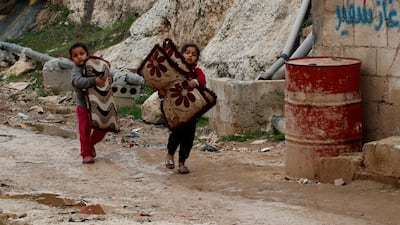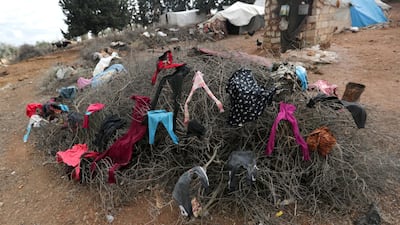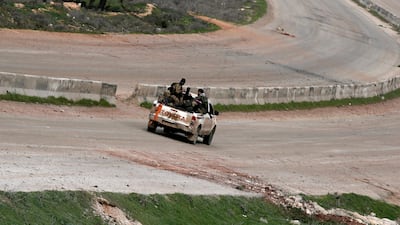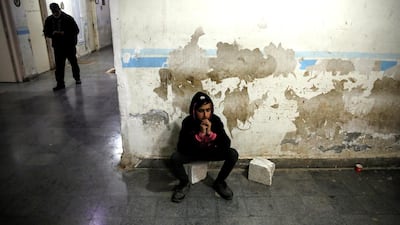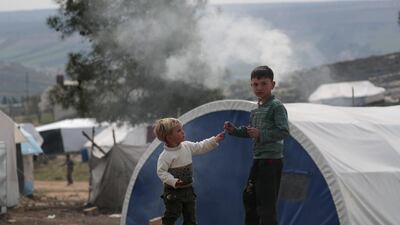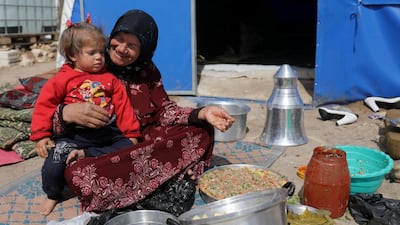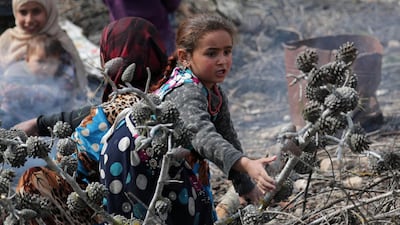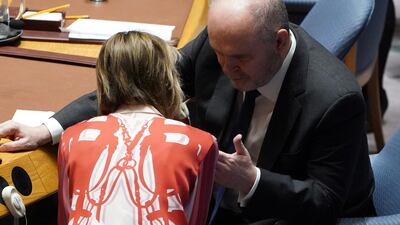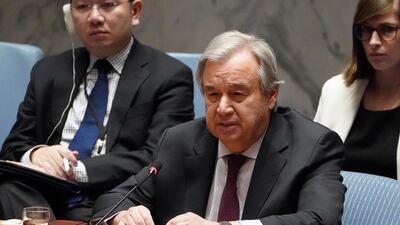The head of the UN children’s agency has asked government officials for more access inside Syria, saying it’s critical to bring aid to “the most vulnerable” in the war-torn country, which is experiencing one of the conflict’s worst humanitarian crises yet.
The request came as Britain demanded the UN provide a more detailed account to the Security Council on which communities in the war-torn country were unreachable as diplomats prepare for what they expect to be another showdown with Russia over cross-border aid.
After a two-day visit to Syria to tour areas close to the north-west province of Idlib, UNICEF executive director Henrietta Fore said she hopes a recent ceasefire deal will hold.
A punishing Russian-backed government offensive on the province that began in December displaced nearly 1 million people and left hundreds of civilians dead. The fighting halted on Thursday evening after a deal between Russia and Turkey, a key backer of the rebels in the final opposition-held province that has thousands of soldiers on the ground.
The two countries support rival groups in the conflict and in recent years became the main power brokers in Syria.
Despite the deal, there are concerns in Idlib that the cease-fire might not hold for as long as previous truces that collapsed, leading to waves of violence.
“We do hope that this will hold,” said Ms Fore from southern Turkey. “That is the most important thing for the children and for their families. We need to have a cessation of all hostilities and we need it now.”
Many of those families currently in Idlib have been displaced from other parts of Syria as President Bashar Al Assad’s forces made gains on the ground in recent years with the help of their Russian and Iranian allies.
“These families, some of them have moved three, four, five, six, times. It’s just too much for a family, it’s just too much for a child. There are mental health ramifications for children if you move them that often,” Ms Fore said.
Ms Fore and David Beasley, executive director of the World Food Program, met Syrian officials, including Foreign Minister Walid Al Moallem who told them that Damascus is ready to facilitate their work in the country, according to state media.
A financial and economic crisis in Syria and neighbouring Lebanon has also had negative repercussions on Syrians.
A UN statement said the economic crisis is pushing millions of people into hunger and food insecurity, in which they lack reliable access to enough affordable, nutritious food. According to the UN, the number of food-insecure people increased from 6.5 million to 7.9 million, and food prices spiked by 60 per cent between 2018 and 2019.
Ms Fore said UN agencies need access not only in Idlib but also north-east Syria where there are some 28,000 children from over 60 countries in the Al Hol camp that is hosting more than 60,000 people mostly wives, widows and children of members of ISIS.
Earlier this year, Russia scored a victory for its ally, the Syrian government, when it used its veto threat to force the UN Security Council to adopt a resolution significantly reducing the delivery of cross-border humanitarian aid and cutting off critical medical assistance to over a million Syrians.
The resolution adopted by the UN’s most powerful body reduces the number of crossing points for aid deliveries from four to just two, from Turkey to the mainly rebel-held northwest, as Russia demanded.
In a letter to UN aid chief Mark Lowcock, seen by Reuters on Friday, British UN Ambassador Karen Pierce asked for information on "the types of aid deliveries for which the UN is required to solicit approvals from authorities in Damascus."
"The Security Council, as well as donors and the wider international community, need to understand who is receiving aid and if safe, unimpeded and sustained access, on the basis of need and need alone to the most vulnerable, is being obstructed," Ms Pierce wrote in the March 3 letter.
Western diplomats have said the closure of the Iraq crossing cuts off 40 per cent of medical aid to north-east Syria.
The council needs to adopt another resolution by July 10 to renew the mandate for the cross-border aid operation. Some diplomats, speaking on condition of anonymity, believe there will be further opposition from veto power Russia.
A resolution needs nine votes in favour and no vetoes by Russia, China, the United States, France or Britain.
Russian UN Ambassador Vassily Nebenzia has dismissed concerns about reducing the cross-border operation because he said the situation on the ground had changed and aid was being delivered to the areas in need from within Syria.
Mr Beasley said they are asking “all sides to give us the access we need, whether it’s Russian military, whether it’s Turkey, whether it’s the United States, the Syrian government.”
“No matter who controls what area, we’re asking for more access to reach more people,” Mr Beasley said.
Ms Fore called for the repatriation of children from Al Hol camp, where children don’t go to schools and many are being taught extreme ISIS ideology. “They need to have homes. They need to not be stateless,” she said.
Western countries, including the United States, have refused to repatriate all its citizens who travelled to the Middle East to join ISIS, fearing they may not have enough evidence to convict them in criminal courts.
“We are continuously asking for access. We are asking that every country repatriate the children and their mothers” Ms Fore said, adding that many of those in Al Hol are without identification.










